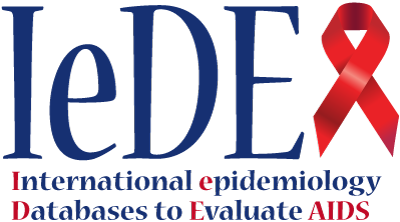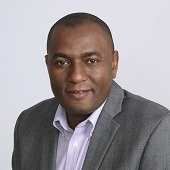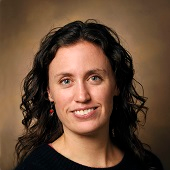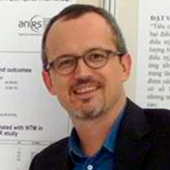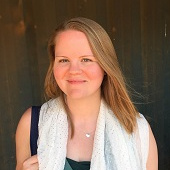Mark the date: N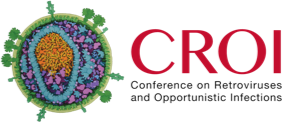 ovember 1, 2021, is the general abstract and scholarship submission deadline for the 29th Conference on Retroviruses and Opportunistic Infections (CROI). CROI 2022 will be held on February 13 to 16, 2022, and is currently planned as a hybrid conference to include both virtual and in-person participation. The in-person component, hosted in Denver, Colorado, USA, will feature additional sessions and networking opportunities for those attending live. The CROI Scientific Program Committee will monitor the COVID-19 pandemic carefully in terms of changes in the safety and practicality of hosting an in-person component.»
ovember 1, 2021, is the general abstract and scholarship submission deadline for the 29th Conference on Retroviruses and Opportunistic Infections (CROI). CROI 2022 will be held on February 13 to 16, 2022, and is currently planned as a hybrid conference to include both virtual and in-person participation. The in-person component, hosted in Denver, Colorado, USA, will feature additional sessions and networking opportunities for those attending live. The CROI Scientific Program Committee will monitor the COVID-19 pandemic carefully in terms of changes in the safety and practicality of hosting an in-person component.»
News
Funding for Training in mathematical modelling
The HIV Modelling Consortium will fund two candidates who are based in sub-Saharan Africa to attend a two-week online training course in mathematical modelling.
The course is aimed at policy-makers, public health professionals, academic researchers or anyone who needs to develop, use or interpret mathematical modelling for public health decision-making. Only a very basic mathematical ability is required to attend. The course runs from 6th-15th Sept 2021 and is organised by Imperial College London. More details are provided here: https://www.infectiousdiseasemodels.org.
EACS 2021 – Abstract submission deadline extended!
The deadlines for the abstract submission for the European AIDS Conference and the European Hector Research Award have been extended to July 8, 2021.
Submit your abstract here.
AORTIC Virtual – registration open
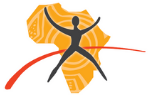 The registration for the AORTIC Conference is now open. The conference will take place virtually from November 5-10, 2021.
The registration for the AORTIC Conference is now open. The conference will take place virtually from November 5-10, 2021.
For more information visit their website.
HIV services in sub-Saharan Africa: the greatest gap is men
Morna Cornell and Leigh Johnson of IeDEA-SA recently co-authored an invited Comment for The Lancet to mark the 40th anniversary of the first cases of AIDS. Focusing on eastern and southern Africa, the epicentre of the pandemic, they noted the remarkable progress in access to HIV testing and care in sub-Saharan Africa, largely driven by activism and advocacy. They highlighted persistent gender disparities across the HIV continuum, with heterosexual men – particularly those aged 35-49 years – the largest unaddressed gap in HIV services.
The complete comment can be accessed here.
IeDEA 2021 Global Meeting
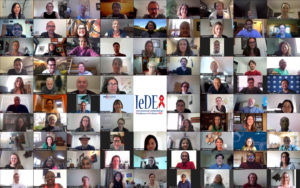 The presentations of the online global meeting remain accessible to registered participants through October 7 on the meeting website.
The presentations of the online global meeting remain accessible to registered participants through October 7 on the meeting website.
All early-stage investigator video posters can be found on the IeDEA YouTube channel.
New IeDEA Working Group Leadership
We are pleased to welcome new leadership for IeDEA’s Working Groups. Marcel Yotebieng, co-PI of Central Africa IeDEAis joining Jonathan Golub of IeDEA Asia-Pacific as co-Chair of the Tuberculosis and Lung Health Working Group. Chad Achenbach of NA-ACCORD and Jessica Castilho, who works with both CCASAnet and NA-ACCORD, will co-Chair the Cancer Working Group. Our new TB-Sentinel Research Network will be co-Chaired by Olivier Marcy (West Africa) and Leslie Enane (East Africa), which will begin a multiregional, prospective cohort study across six IeDEA regions in 2021.
Thanks to our outgoing co-Chairs Amita Gupta (TB and Lung Health) and Julia Bohlius and Jeff Martin (Cancer) for their many years of support.
Global Newsletter – May
Read our latest Global Newsletter here
IeDEA Grant Renewal
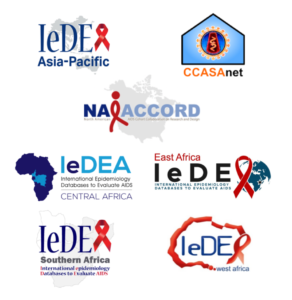 US NIH renews the IeDEA global consortium for another 5 years!
US NIH renews the IeDEA global consortium for another 5 years!
Between 2016-2020, IeDEA has published over 500 regional and multiregional papers, making substantial contributions to advancing the fields of HIV-related clinical and social science, epidemiology, and data methods and harmonization. Our 7 regions are ready to implement a new set of innovative research agendas that will leverage the HIV cohort databases we have been building for 15 years and the partnerships we have established with local investigators in 44 countries.
Thanks (and congratulations) to the many people around the world who have helped IeDEA to become a force for inclusive science and collaboration.
SARETI – Call for applications
The South African Research Ethics Training Initiative – call for applications
The call for applications is now open and applications close on Friday, 30 July 2021.
The SARETI programme offers PhD leadership training in research ethics to professionals involved with health research in Africa. It will train African candidates who have interests compatible with one or more of the following three themes that will provide a thematic focus to the programme:
- Improving health research systems in Africa through research ethics leadership
- Improving effectiveness and efficiency of ethics review systems through research ethics leadership
- Maximising social value of research in Africa through research ethics leadership
More information can be found here.
